Thanks for subscribing!
You will now receive future content from Lyra Health.
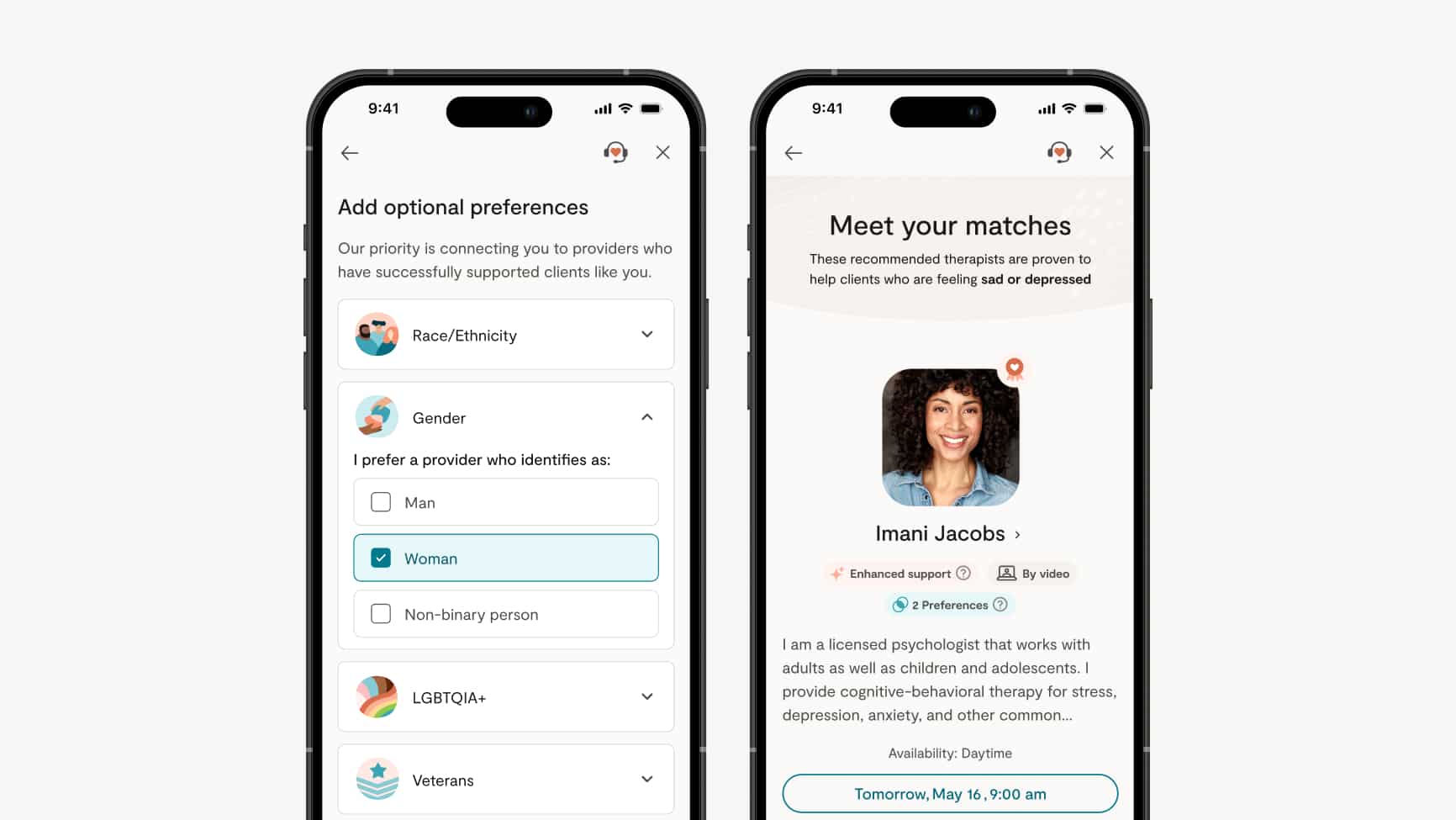
Most of the time, the best mental health provider someone can hope to find is one who is actually accepting new clients, and with a lot of luck, accepts their insurance. Even this exceedingly low bar is often insurmountable.
Among those clients lucky enough to find a provider, 1 in 3 drop out of therapy before completing care. While this number is already far too high, clients from historically marginalized racial-ethnic groups are 40-80% even more likely to drop out of care early. This is because our current system fails to get the right person to the right provider, so people continue to suffer while wasting both time and money.
From the earliest days of Lyra, we knew this was unacceptable and we set out to solve it. One of the best predictors of positive outcomes is a term known as therapeutic alliance. Simply put, this means that the stronger the connection and emotional bond the client has with a clinician, the more likely they are to have symptom reduction. And research has shown improved therapeutic alliance when the therapist and client share an identity trait.
But when there’s a provider shortage in most of the world, appalling wait times for treatment, and underrepresentation of clinicians from historically marginalized communities, how is it possible to find the right provider?
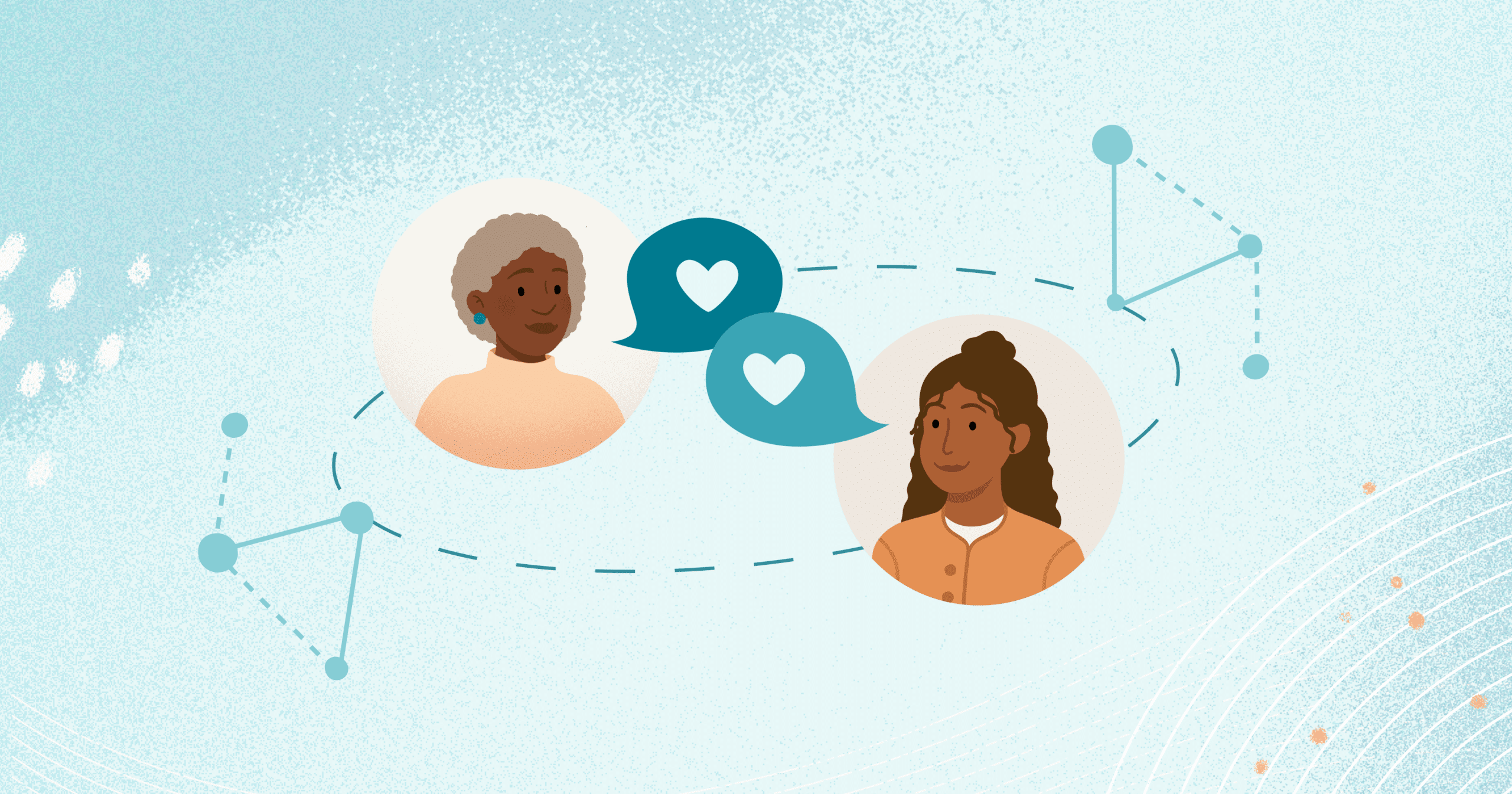
The answer is our AI-matching technology, which we built and have been refining since 2016. This tech is fueled by our handpicked, diverse network of providers and commitment to evidence-based, culturally responsive care, leading to an unmatched member experience.
While the term AI can feel intimidating in mental health care, we use it as a highly sophisticated matching engine that uses machine learning to sort through our robust network of providers and find the right one for each client based on millions of data points. We connect people with a provider based on their clinical needs, schedule, location, and preferences for provider identity and availability to meet in-person or virtually, as well as the provider’s history of success treating similar needs.
We’ve recently added even more provider preference options that deepen the power of our provider-matching AI technology. Our members will be able to request a provider with a shared gender, race, ethnicity, LGBTQIA+ identification, language proficiency, and/or experience working with individuals from veteran and/or religious backgrounds.
“[Lyra] let me find people who look like me, sound like me, and understand me,” said Tara Kousha, VP of justice, equity, diversity, and inclusion at Catalight. “It’s not to say a straight white man can’t do that. But it is to say that in certain moments, we need and want people who deeply either have lived our experience or are educated and knowledgeable on it. If we don’t offer culturally responsive care, we’re missing 50% of our population.”
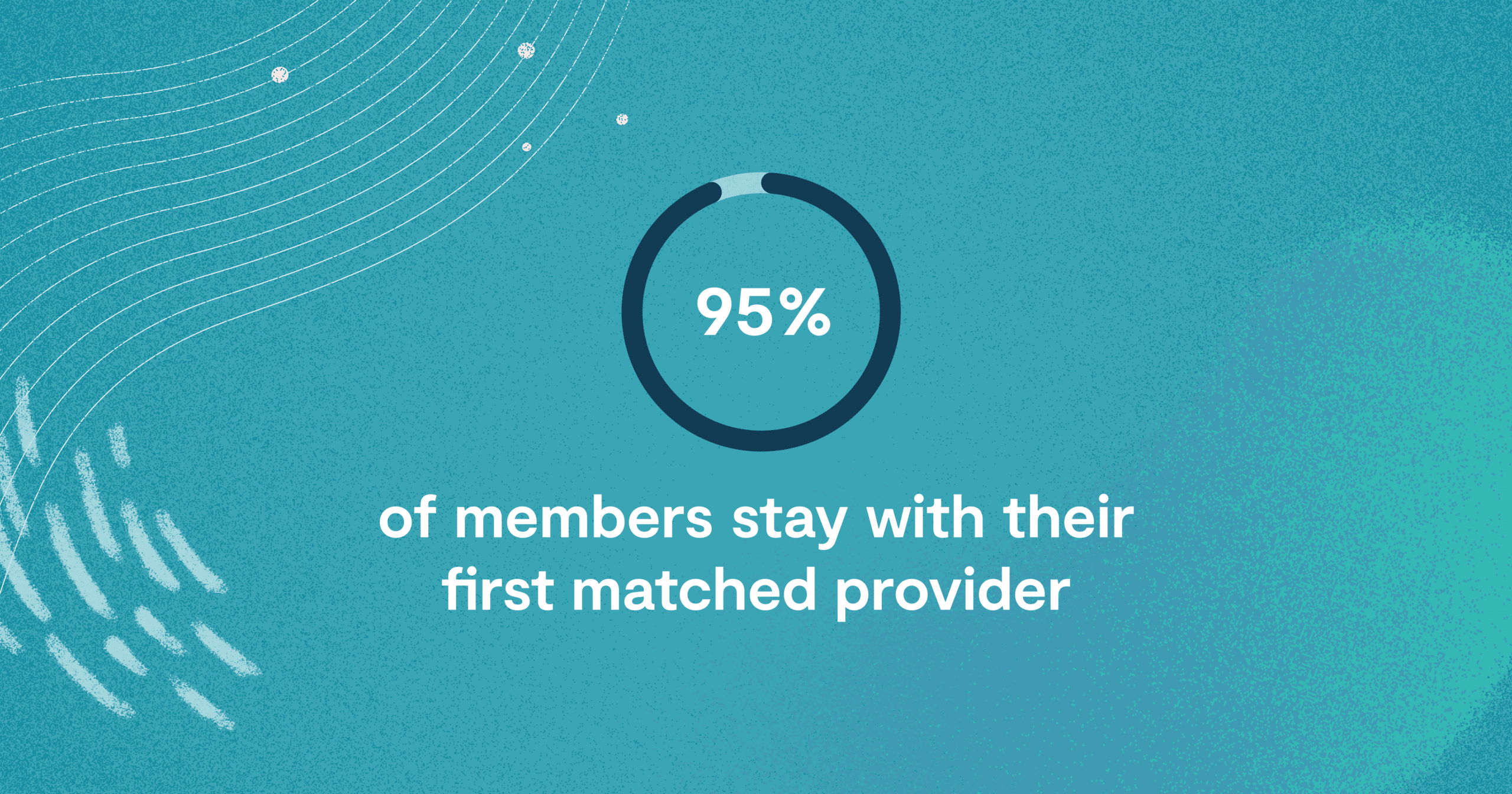
Further, our technology is continually improving because of our commitment to taking a data-driven approach to mental health care. We regularly assess and evaluate clients’ outcomes and progress and then feed that anonymized data back into our platform so that it can get better over time. To date, Lyra has collected more than 7.8 million outcomes, and every one of them has helped us improve the care we offer.
On average, Lyra clients see less than a one-day wait time for a first available appointment. Most importantly, more than 95% of Lyra clients stay with their first matched provider and nearly 90% see a meaningful reduction in symptoms or full recovery. Additionally, 92% of our clients say they’re highly satisfied or satisfied with their relationship with their provider.
These numbers are unheard of in traditional systems.
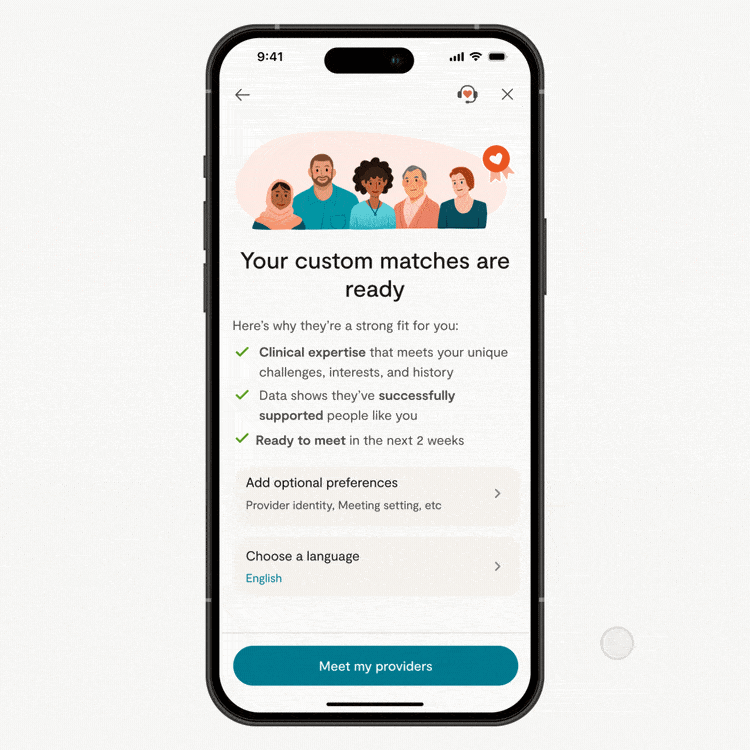
Our launch of additional preferences and options for provider selection has made this technology even more powerful. It’s not a basic filter that could return a list of 100 providers, leaving the burden on the client to sort through and find the right one. Instead, it analyzes not only the requested parameters, but also millions of previous outcomes to create a short list of providers whose expertise is tailored specifically to the member.
This empowers members to receive care that truly resonates with their needs, and leads to more efficient and effective treatment. For providers, it lets them not only care for members of their communities but also connect to the clients they’ll be able to help the most. For both, it creates an immediate foundation of trust and rapport that lets them get into the real work of healing right away. And, it reduces the burden on employers by streamlining the care process, ultimately saving time and resources.
Kamila Jones, a Lyra client and senior project engineer at JE Dunn, said she’d tried two or three other therapists that just didn’t work before finding her Lyra provider. Not feeling understood or heard for cultural reasons was a big part of the disconnect.
“When seeking out a therapist for me today, it was important for me to see myself in my therapist,” she said. “This meant a woman, a certain age range, and a woman of color. My Lyra therapist is great.”
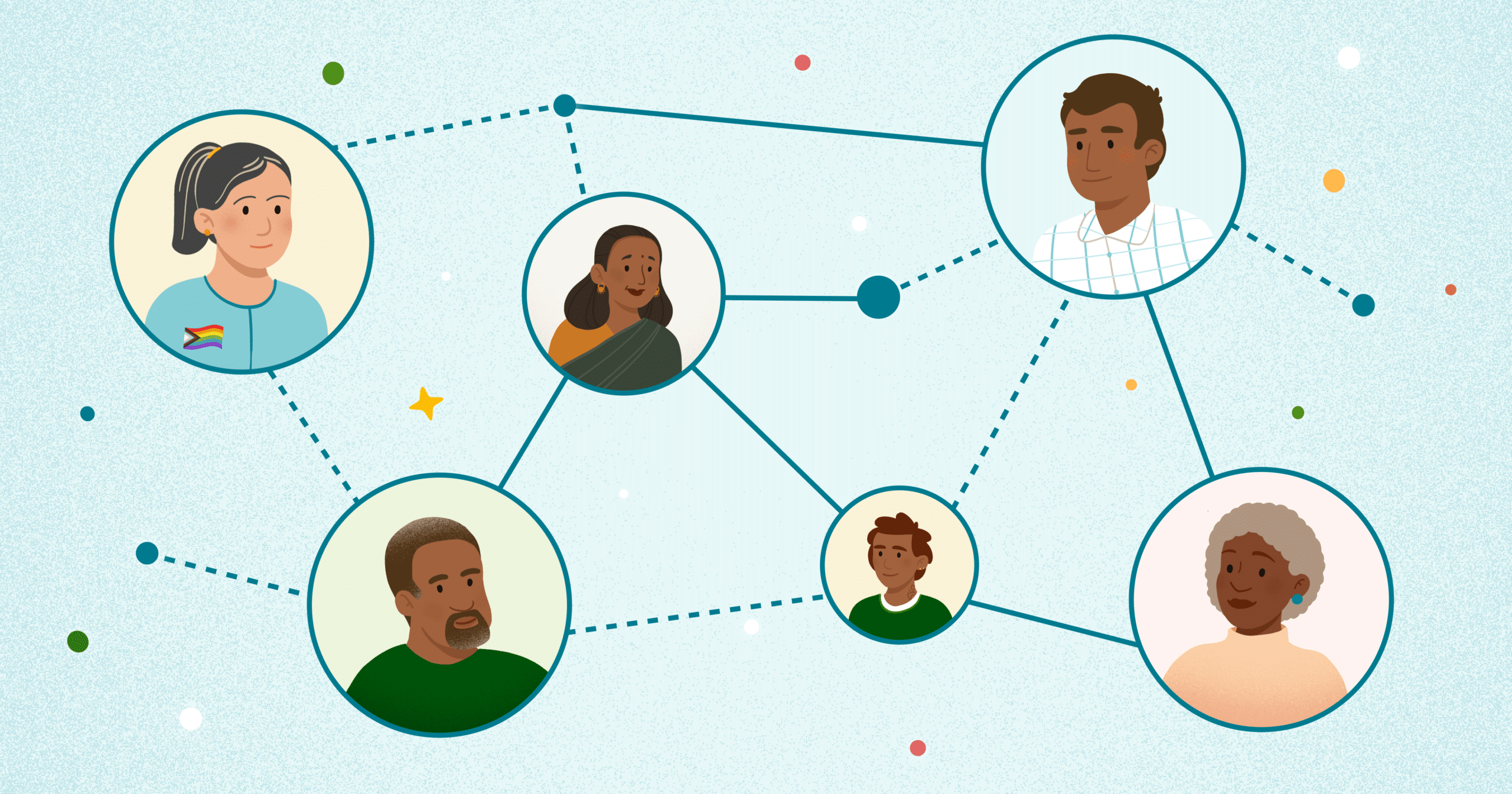
Our technology only works as well as it does because of our deep commitment to culturally responsive care, and the years of effort we’ve invested to build a truly diverse and representative provider network. This philosophy of care is rooted in a multicultural and intersectional approach that accounts for how someone’s experiences can be shaped by their cultural background. At Lyra, 42% of our providers self-identify as people of color, compared to only 14% across the U.S.
“When a vulnerable experience is connected to a marginalized or minority identity, it’s even more important that therapists offer support in a culturally competent way, by integrating culturally responsive care into the practice of evidence-based therapy,” said Tatiana McDougall, director of clinical culturally responsive care at Lyra. “When that happens, clients stay engaged long enough to get the care that they need and deserve.”
All of our providers are trained in how to deliver culturally responsive care. We also offer regular continuing education opportunities to help providers develop these clinical skills and inform their interventions when working with a wide range of clients, particularly those from marginalized communities.
As one member so perfectly put it, “I connected with my therapist literally right away. She knows how to speak my language and I don’t have to waste time explaining to her who I am and what I went through, because she knows.”

Our systems and algorithms are constantly improving themselves to learn, grow, and provide better matching. This is important because we know that the center of care is the client-provider relationship and that our evidence-based, culturally responsive care has been proven to get people better consistently across races and ethnicities.
There are many possibilities for the future of AI in mental health care, and we’re closely watching them all. Our commitment to evidence-based care means we will always follow the science, and explore and invest in technology that meaningfully improves the member and provider experience. This means we’ll only introduce new elements of AI to our platform when we know they can safely make care more engaging, efficient, and effective.
Learn more about Lyra's AI matching technology and advanced provider preferences
Download the guide